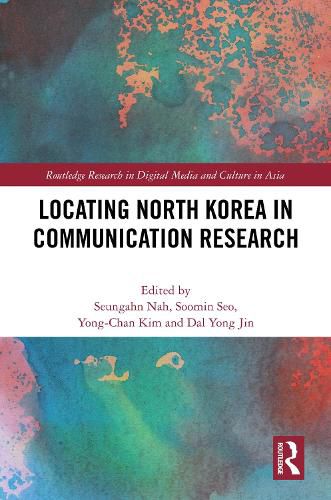Readings Newsletter
Become a Readings Member to make your shopping experience even easier.
Sign in or sign up for free!
You’re not far away from qualifying for FREE standard shipping within Australia
You’ve qualified for FREE standard shipping within Australia
The cart is loading…






This volume showcases continuity and change in communication with and within North Korea. By approaching the country from three distinct angles - news media, popular culture, and digital technology - this volume looks at media portrayals of North Korea, at cultural discourses in various media, and at the impact of new and emerging technologies.
Taking a variety of communication studies perspectives, this book first addresses why North Korea matters for the general audience, academic audience, and communication scholars in particular, and how communication studies can benefit from studying North Korea. Drawing on insights from history and international relations, this book shows how the Cold War and Old-World Order shape media and communications in places like North Korea, as well as how the desire for people to communicate and to be understood can surpass such a regime's tight control.
This multifaceted look at communication within this fascinating and under-studied nation will appeal to scholars, researchers, and upper-level students of communication studies, media studies, journalism, new and digital media, and political communication.
$9.00 standard shipping within Australia
FREE standard shipping within Australia for orders over $100.00
Express & International shipping calculated at checkout
This volume showcases continuity and change in communication with and within North Korea. By approaching the country from three distinct angles - news media, popular culture, and digital technology - this volume looks at media portrayals of North Korea, at cultural discourses in various media, and at the impact of new and emerging technologies.
Taking a variety of communication studies perspectives, this book first addresses why North Korea matters for the general audience, academic audience, and communication scholars in particular, and how communication studies can benefit from studying North Korea. Drawing on insights from history and international relations, this book shows how the Cold War and Old-World Order shape media and communications in places like North Korea, as well as how the desire for people to communicate and to be understood can surpass such a regime's tight control.
This multifaceted look at communication within this fascinating and under-studied nation will appeal to scholars, researchers, and upper-level students of communication studies, media studies, journalism, new and digital media, and political communication.